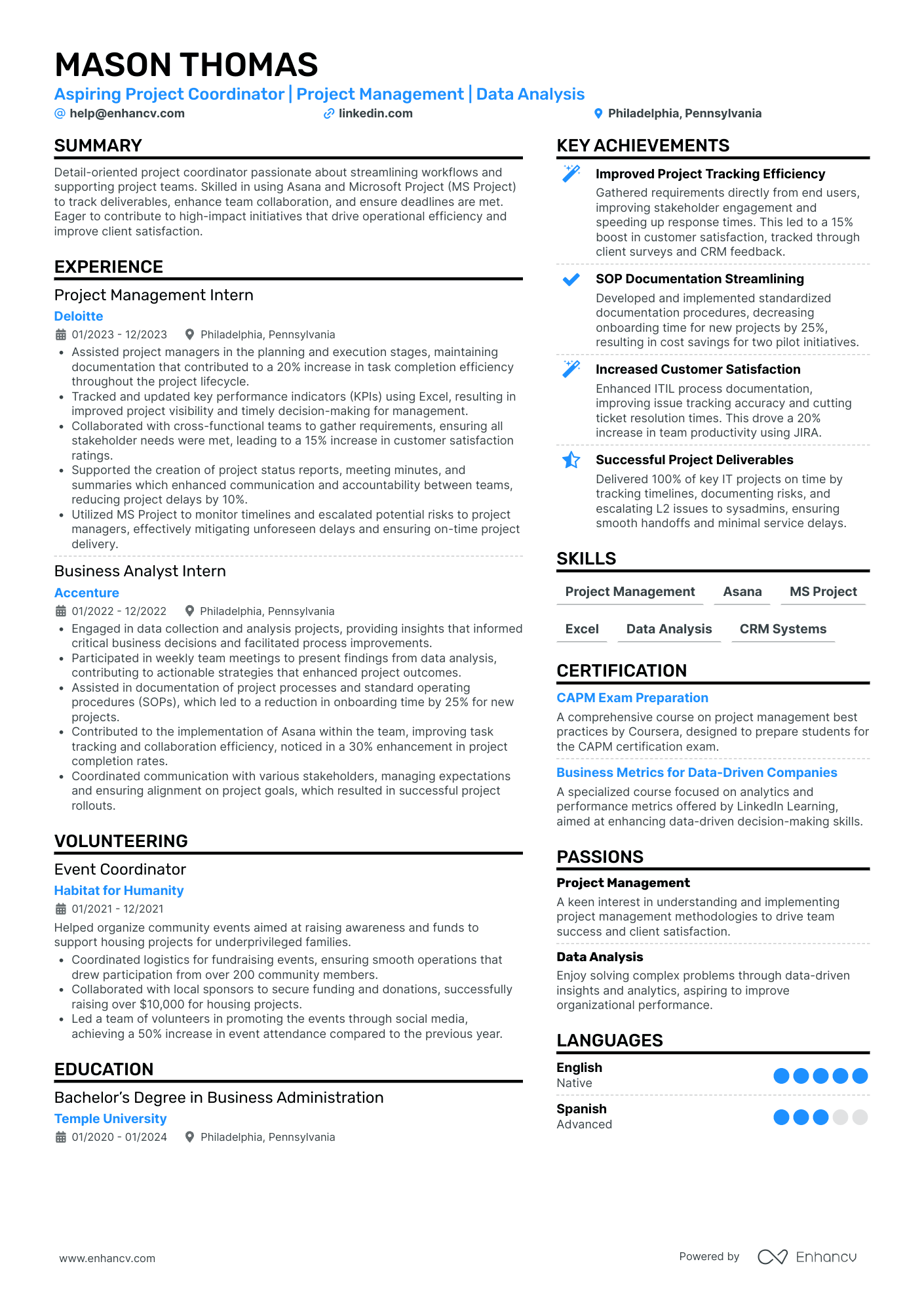Abbreviations can make your resume more concise and professional—but only when used effectively. While industry-standard terms improve readability and signal expertise, excessive or obscure shorthand can confuse recruiters or cause issues with applicant tracking systems (ATS).
Knowing when to abbreviate and when to spell things out can make a difference in how your resume is received. The key is balance.
This guide will help you determine when to use shortened terms, when to write them out, and how to ensure they work for both recruiters and ATS systems.
Key takeaways
- Use commonly accepted abbreviations for industry terms, credentials, and job titles.
- Spell out acronyms the first time before using their abbreviation.
- Stick to one version of an abbreviation throughout your resume.
- Avoid excessive jargon—too many acronyms can reduce readability.
- Tailor your resume to match the job description’s terminology.
- If an abbreviation might not be understood, introduce it in full for clarity.
Not sure if your resume is ATS-friendly? Upload it now and check with our free ATS scanner before you submit.
Is your resume good enough?
Drop your resume here or choose a file. PDF & DOCX only. Max 2MB file size.
How to use abbreviations effectively
Abbreviations can make your resume easier to read and help you fit key details into limited space. To ensure your abbreviations enhance readability rather than detracting from it, follow these best practices. And remember, when space is at a premium, knowing the ideal resume length can also play a key role in keeping your resume both concise and effective.
Prioritize readability over brevity
While abbreviations can help save space, they should never sacrifice clarity. If there's a chance that a hiring manager or applicant tracking system (ATS) might not recognize an abbreviation, spell it out first and follow with the abbreviated form.
It's important to bust the myth that ATS will automatically reject abbreviations—many systems can recognize industry-standard terms when used correctly, but clarity should always come first.
Good Example
"Led a Search Engine Optimization (SEO) strategy that increased traffic by 120%."
Choose industry-recognized terms
Use abbreviations that are widely recognized in your industry. Avoid internal jargon or uncommon abbreviations, as they can confuse recruiters or ATS systems.
Good Example
"Certified Project Management Professional (PMP) with 5+ years of experience."
Maintain consistency throughout your resume
Inconsistencies in abbreviation use can make your resume seem unpolished. Choose one version for each term and use it consistently throughout your document.
Good Example
"Managed a team of five PMs across multiple projects."
Match your abbreviations to the job description
Many companies use specific abbreviations in their job listings. Tailoring your resumeto match their terminology aligns with recruiter expectations and also improves your chances of passing ATS scans.
Some applicant tracking systems may be programmed to recognize certain abbreviations. Others may ignore them, so using the same wording as the job posting helps ensure your resume gets properly indexed.
Good Example
If a job posting states "Customer Relationship Management," use both the full name followed by the abbreviation: "Customer Relationship Management (CRM)" on its first mention to cover both bases.
Avoid overloading your resume with abbreviations
Too many abbreviations, especially in a single section, can clutter your resume and make it hard to read. Be selective and maintain a balance between brevity and clarity.
Good Example
"Implemented AI/ML models to enhance fraud detection."
Resume sections that benefit from abbreviations
Certain resume sections naturally lend themselves to abbreviations, helping you present key details more efficiently while maintaining clarity. Below are the sections where abbreviations are most effective:
Education section
Academic degrees are often abbreviated, but it's important to spell out the full name first for clarity. When considering how to list education on a resume, make sure that formatting remains consistent across all entries.
Good Example
"Master of Business Administration (MBA), Harvard University, 2022"
Experience section
Job titles, certifications, and industry-specific skills can be abbreviated in the work experience section, as long as they are widely recognized in your field. Just like in the education section, introduce the full term before the abbreviation for clarity.
Good Example
"Managed a Customer Relationship Management (CRM) system for a client portfolio worth $2M"
Skills section
Technical skills often include abbreviations, especially in fields like IT, finance, and healthcare. These are acceptable when the abbreviation is well-known and commonly used in your industry.
Good Example
"Expert in Search Engine Optimization (SEO) and Google Analytics (GA)"
Universal resume abbreviations
Some abbreviations are widely recognized and expected on a resume.
Here are some of the most commonly accepted ones:
Degrees
- Bachelor of Arts (BA)
- Bachelor of Science (BS)
- Master of Business Administration (MBA)
- Doctor of Philosophy (PhD)
Job titles
- Chief Executive Officer (CEO)
- Chief Operating Officer (COO)
- Project Manager (PM)
- Business Analyst (BA)
Technical skills and certifications
- Search Engine Optimization (SEO)
- Project Management Professional (PMP)
- Customer Relationship Management (CRM)
Months and dates
- Standard format: Jan, Feb, Mar, Apr, May, Jun, Jul, Aug, Sep, Oct, Nov, Dec
- Numeric format: 01/2026, 02/2026, 03/2026, etc.
- Year and quarter format (if applicable): Q1 2026, Q2 2026, etc.
Numbers and metrics
- Thousand (K): "Managed a budget of $500K"
- Million (M): "Increased revenue by $2M"
- Billion (Bn): "Led expansion into $5Bn market"
Industry-specific resume abbreviations
Different industries rely on specific abbreviations that can demonstrate your familiarity with industry terminology and ensure your resume speaks the language of your field.
Technology and IT
- Artificial Intelligence (AI)
- Machine Learning (ML)
- JavaScript (JS)
- Agile Development (Agile)
Finance and accounting
- Certified Public Accountant (CPA)
- Return on Investment (ROI)
- Generally Accepted Accounting Principles (GAAP)
- Profit & Loss (P&L)
Healthcare
- Electronic Medical Records (EMR)
- Registered Nurse (RN)
- Emergency Medical Technician (EMT)
- Health Insurance Portability and Accountability Act (HIPAA)
Conclusion
Abbreviations can make your resume professional, but only when used thoughtfully. Stick to industry-standard terms, maintain consistency, and spell out key terms at least once to assure they’re understood by both recruiters and ATS.
Before submitting your resume, scan it for abbreviations that might be unclear or unnecessary. If you’re unsure, err on the side of clarity.
Upload your resume now to check if your abbreviations are working for you, not against you.
Is your resume good enough?
Drop your resume here or choose a file. PDF & DOCX only. Max 2MB file size.
Make one that's truly you.




